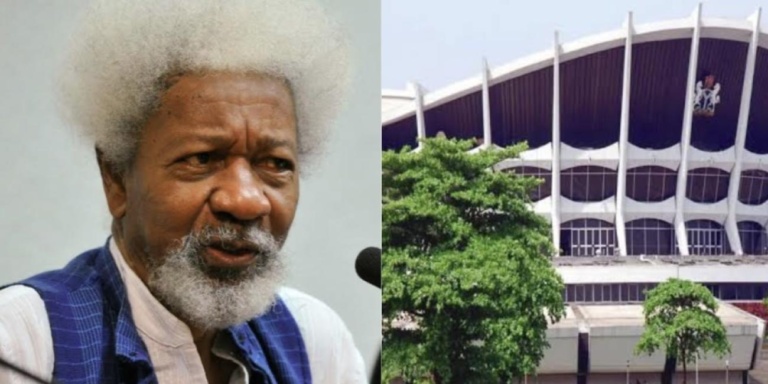President Bola Ahmed Tinubu has paid tribute literary icon Prof. Wole Soyinka by renaming the National Theatre as Wole Soyinka Centre for Arts and Culture in honour of the Nobel laureate’s enduring legacy.
This was communicated in a press statement personally signed by the President and titled, ‘Professor Wole Soyinka at 90: Tribute to a National Treasure and Global Icon.’
According to Mr Tinubu, he is pleased to join the world in celebrating the Nobel laureate.
“I am pleased to join admirers around the world in celebrating the 90th birthday of Nigeria’s iconic son and the world-renowned Professor Akinwande Oluwole Babatunde, famously known as Wole Soyinka,” he said.
He further stated that Soyinka, the first African to win the Nobel Literature Prize in 1986, deserves all the accolades as he marks the milestone of 90 years on earth.
Having beaten prostate cancer, the milestone is a fitting, it was noted.
While highlighting events held in his honour, he noted that events were held as far as Morocco in his honour on July 9, a move which is a testament to his ruggedness as a person and the significance of his work.
The Nigerian President went on to announce the decision of the federal government to rename the National Theatre after Prof Wole Soyinka.
“I am, accordingly, delighted to announce the decision of the Federal Government to rename the National Theatre in Iganmu, Surulere, as the Wole Soyinka Centre for Culture and the Creative Arts.
“We do not only celebrate Soyinka’s remarkable literary achievements but also his unwavering dedication to the values of human dignity and justice.
“When he turned 80, I struggled to find words to encapsulate his achievements because they were simply too vast. Since then, he has added to his corpus with his series of interventions, which have been published in many volumes.”
He further described the celebrant as a “colossus, a true Renaissance person blessed with innumerable talents. He is a playwright, actor, poet, human rights and political activist, composer, and singer.”
“His courage was evident when he attempted to broker peace at the start of the civil war in 1967. Detained for two years for his bravery, he narrated his experience in his prison memoir, ‘The Man Died,’” he noted.
The statement said, “Despite deprivation and solitary confinement, his resolve to speak truth to power and fight for the marginalized was further strengthened.
“His early writing, such as ‘The Lion and the Jewel,’ ’Death and the King’s Horseman’, not only testified to his mastery of language, his innovative storytelling, but also his unflinching commitment to enthroning a fair and just society.”
He also commended Wole Soyinka for his efforts in tackling military dictatorship in the country.
He said, “Our paths crossed during our just struggle for the enthronement of democracy in Nigeria following the annulment of June 12, 1993 presidential election.
“When faced with a trial in absentia and death sentence by the military regime at home, he galvanized opposition in exile through NALICON and NADECO. His global stature made him the face of our struggle to validate June 12 and restore democracy in Nigeria.”
